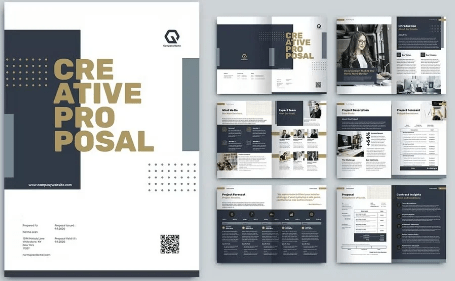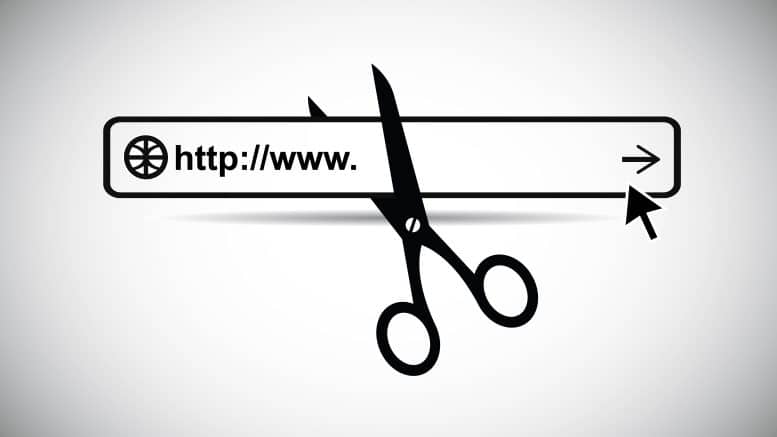Struggling to close deals due to subpar sales proposals? You’re not alone, as research has shown that only 1 out of every 4 sales team members can consistently draft persuasive offers.
This blog post is your one-stop guide to crafting compelling sales proposals that win over clients, complete with five real-life examples. Keep reading and step into your new future filled with high-converting proposals!
Key Takeaways
- Conduct market research to understand your target audience and tailor your sales proposal to their specific needs and preferences.
- Understand the essential elements of a sales proposal, such as the executive summary, customer needs, value proposition, and customized solution.
- Create an outline to organize your thoughts and structure your proposal in a logical manner.
- Write a persuasive sales proposal that engages the reader with clear language, addresses their pain points, and highlights the value of your product or service.
- Use social proof, such as testimonials or case studies, to build credibility and trust with potential customers.
Steps to Craft a Persuasive Sales Proposal

Conduct market research to understand your target audience and their pain points. This will help you tailor your sales proposal to their specific needs and concerns.
Conduct market research
Market research stands as a vital step in crafting a persuasive sales proposal. It’s about gathering information on your potential client’s industry, their company, and the challenges they face.
This acquired knowledge lets you tailor your proposal to meet their specific needs and preferences. As you dive into customer reviews, interviews, surveys or even social media posts related to them – it becomes easier to understand how your product or service can solve their problems.
The insights from such purposeful research could be used to show empathy in understanding their struggles which will make your offer more convincing and tailored in the eyes of the prospect client.
Understand the elements of a sales proposal
A successful sales proposal requires a clear understanding of its essential elements. These elements include an executive summary, which provides a concise overview of the proposal; a thorough description of the customer’s needs and pain points; a compelling value proposition that highlights the benefits of your product or service; and a customized solution tailored to meet those specific needs.
Additionally, including social proof, such as testimonials or case studies, can help build credibility and trust with potential customers. By understanding these key components, you can create a persuasive sales proposal that effectively communicates your message and increases your chances of closing the deal.
Draft an outline
Crafting a persuasive sales proposal begins with drafting an outline. This step helps organize your thoughts and structure your proposal in a logical manner. Start by identifying the key sections you want to include, such as the executive summary, value proposition, and pricing details.
Then, break down each section into subheadings or bullet points to further clarify your ideas. By creating a clear outline, you’ll have a roadmap for writing your sales proposal and ensure that all important points are covered.

Crafting an effective sales proposal is crucial for closing deals and winning clients. The key to writing a persuasive sales proposal lies in engaging the reader with clear, concise language and highlighting the value your product or service offers.
Start by addressing the customer’s pain points and tailoring your proposal to their specific needs. Use a compelling executive summary to grab their attention from the start. Structure your proposal using a format that is easy to read, incorporating visual elements such as charts or graphs when appropriate.
Lastly, proofread and edit your proposal thoroughly before sending it out to ensure professionalism and accuracy throughout. By following these steps, you can create a sales proposal that stands out and increases your chances of success.
Proofread and edit your proposal
To ensure the effectiveness of your sales proposal, it is crucial to proofread and edit it before submitting. Carefully review the content for any grammatical errors, spelling mistakes, or unclear sentences.
Make sure that your language is concise and easy to understand. Additionally, check the formatting and layout to ensure a professional look. By taking the time to thoroughly proofread and edit your proposal, you can increase its chances of making a persuasive impact on potential clients or investors.
Tips to Make Your Sales Proposal More Persuasive
Use social proof by including testimonials or case studies from satisfied customers to demonstrate the value and success of your product or service. Focus on highlighting the unique value you offer, such as cost savings, increased efficiency, or improved performance.
Create a professional design for your sales proposal that is visually appealing and easy to navigate. Format prices correctly by clearly outlining the costs and benefits associated with your offering.
Use social proof
In order to make your sales proposal more persuasive, it’s important to use social proof. Social proof is the concept that people are influenced by the actions and opinions of others.
By showcasing positive testimonials, case studies, or endorsements from satisfied clients, you can build credibility and trust with potential customers. This helps them see that your product or service has been successful for others, making them more likely to choose you.
Incorporating social proof into your sales proposal allows you to demonstrate value and reliability, increasing the chances of winning over your audience.
Focus on your value
To create a persuasive sales proposal, it’s essential to focus on the value your product or service offers. Highlight how your solution solves the customer’s problem or fulfills their needs better than any other option.
Emphasize the unique features and benefits that set you apart from competitors. By clearly demonstrating the value you bring, you will capture the attention of potential clients and increase their interest in choosing your offering.
Use language that showcases how your product or service can positively impact their business, save them time or money, and improve efficiency. Craft a compelling argument that convinces prospects why they can’t afford to miss out on what you have to offer.
Create a professional design

Crafting a persuasive sales proposal is not just about the content, but also about how it is presented. To make a strong impression on potential clients, it’s important to create a professional design for your proposal.
This includes using clear and legible fonts, incorporating relevant images or graphics, and maintaining consistent branding throughout. A well-designed sales proposal can help convey professionalism and credibility, making it more likely that clients will take your offer seriously.
Consider using Gamma AI to create slides that are not only visually appealing but also tailored to effectively communicate your message and persuade your audience.
Engaging Visuals: Use high-quality visuals such as charts, graphs, or infographics to represent data and statistics in an easy-to-understand manner. These visuals can support your arguments and make complex information more accessible to readers.
Consistent Branding: Incorporate your company’s logo and use consistent colors, fonts, and formatting throughout the proposal. This will help reinforce brand recognition and show attention to detail.
Format prices correctly
Formatting prices correctly is crucial in a sales proposal as it helps to convey professionalism and clarity. Use clear headings, bullet points, or tables to present the pricing information in an organized manner.
Ensure that you include all relevant details such as item descriptions, quantities, unit prices, and any discounts or special offers. Be transparent about potential additional costs or fees so that your clients have a full understanding of what they are paying for.
By formatting prices correctly, you can make it easier for clients to understand the value of your products or services and increase their trust in your proposal.
Conclusion
Crafting a persuasive sales proposal is essential for winning over potential clients. By conducting market research, understanding the elements of a sales proposal, and drafting an outline, you can create a compelling offer tailored to your customer’s needs.
Writing the proposal with clear language and proofreading it for errors will ensure that your message comes across effectively. Use these examples and tips to enhance your sales strategy and increase your chances of closing deals successfully.
FAQs
What is a persuasive sales proposal?
A persuasive sales proposal utilizes effective sales techniques and well-crafted messages to convince potential customers about the value of your offer.
How can I craft a winning sales pitch in my proposal?
You can create an engaging sales presentation by researching customer pain points, simplifying language in proposals, adding visual elements and tailoring the proposals to customer needs.
What should be included in a compelling business proposal?
A convincing business proposal includes customized offers based on customer needs analysis, engaging strategies for presentation skills, negotiation tactics and closing techniques for better engagement and conversion.
Why do I need to edit and proofread my sales proposals?
Editing and proofreading are crucial steps in creating effective proposals as they help refine your message, ensuring clarity and persuasiveness through meticulous attention to details.
Can you give me some examples of effective strategies for persuasive communication?
Effective strategies include understanding your audience’s needs, emphasizing key benefits of your product or service using clear language enhanced with visual aids aiming at increased customer engagement fostering successful negotiations leading up to sale closure.
Are there specific formats when writing B2B Sales Proposals?
Yes! Effective B2B Sales Proposals follow specific formats that convey professional image while displaying critical information clearly enabling decision makers understand quickly how your solution meets their requirements.




